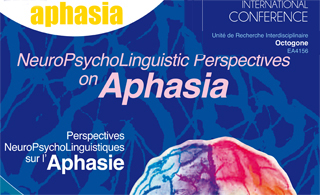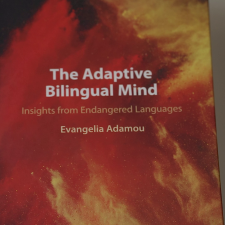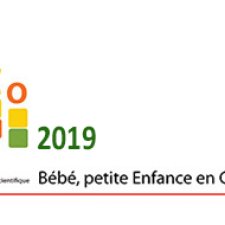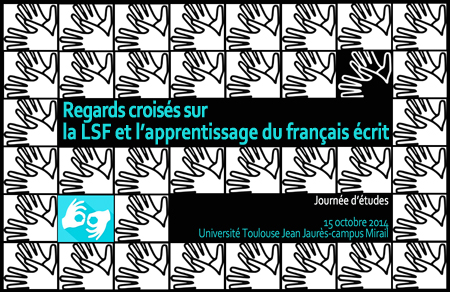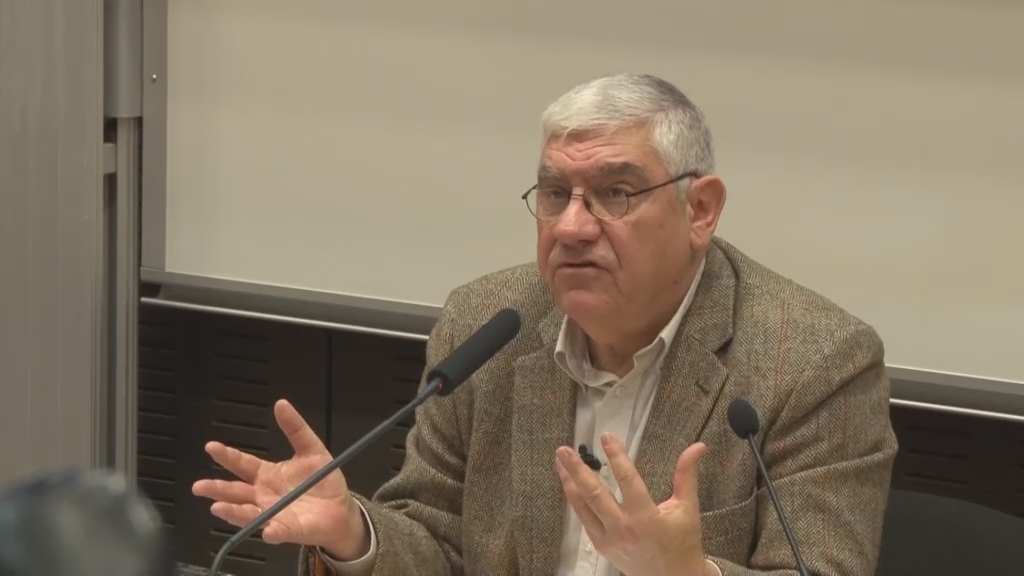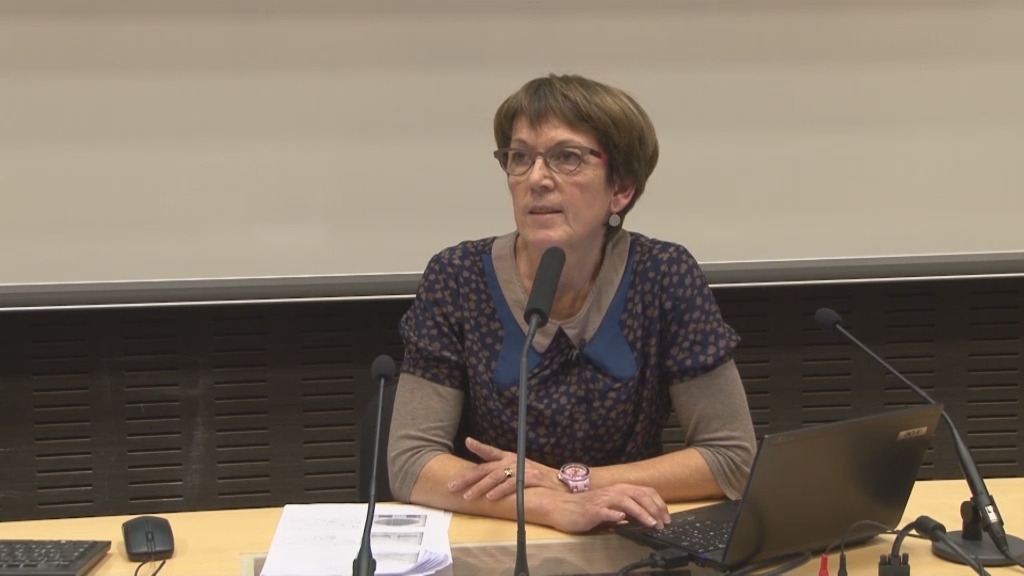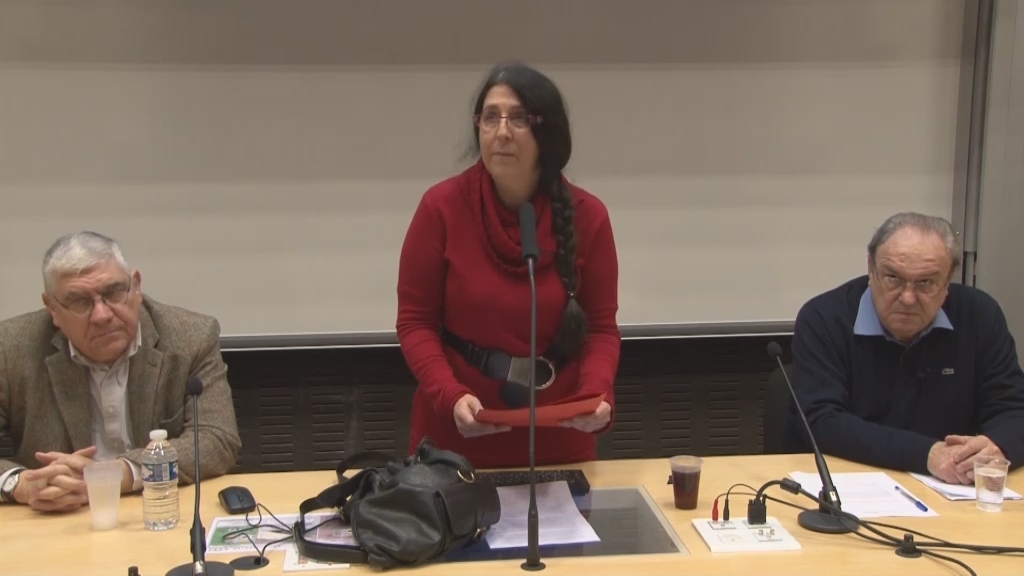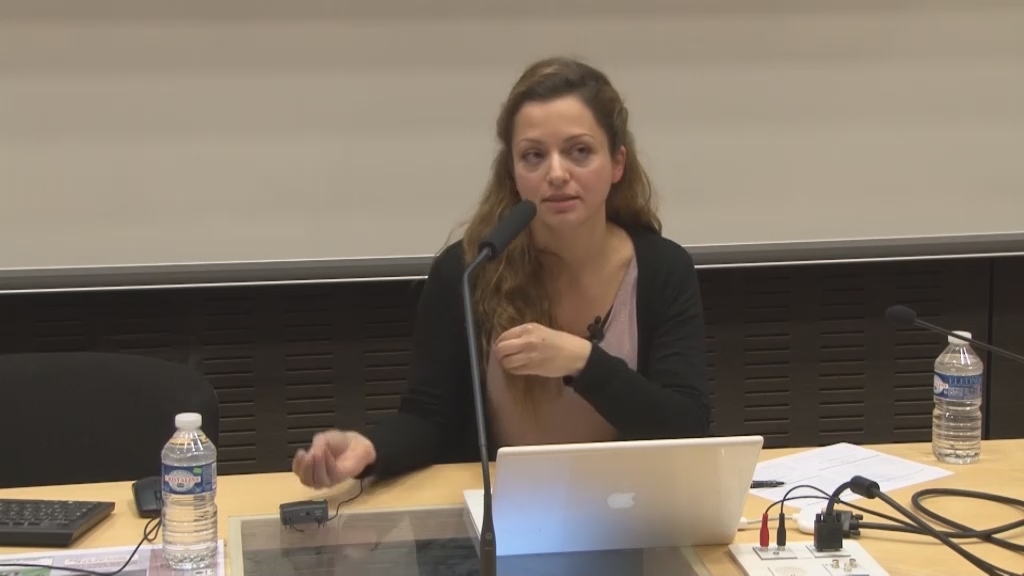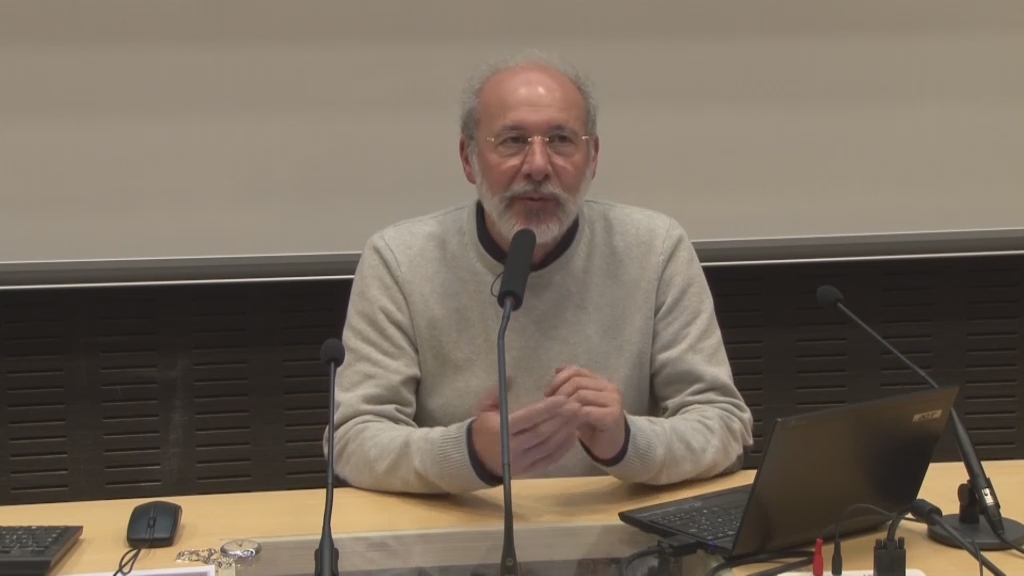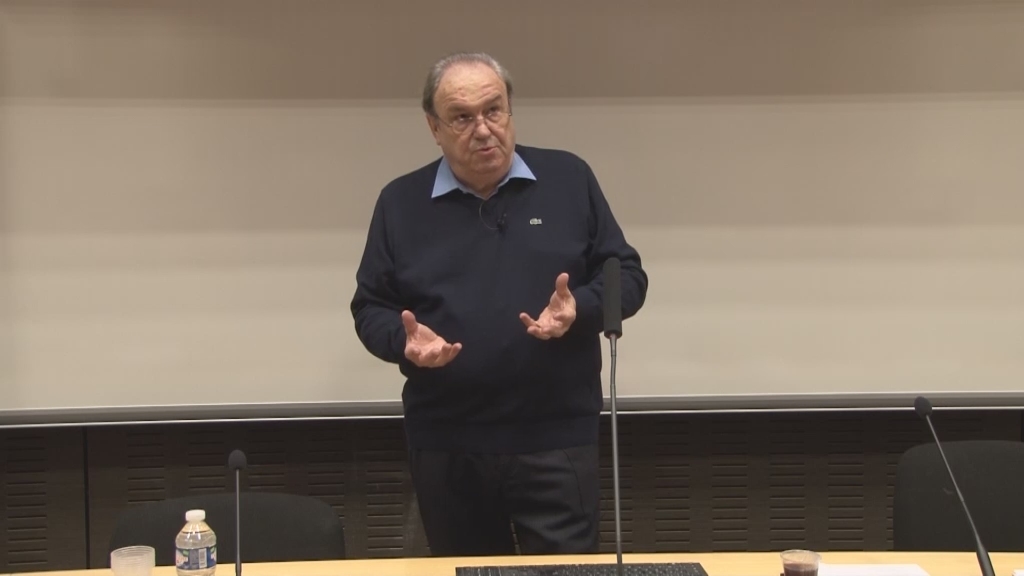Notice
Sentence comprehension deficits in aphasia : additional insights from impairment-specific assessment / Sandra Hanne
- document 1 document 2 document 3
- niveau 1 niveau 2 niveau 3
Descriptif
Sentence comprehension deficits in aphasia : additional insights from impairment-specific assessment / Sandra Hanne. In "Perspectives neuropsycholinguistiques sur l'aphasie - NeuroPsychoLinguistic Perspectives on Aphasia", colloque international organisé par l'Unité de Recherche Interdisciplinaire Octogone de l'Université Toulouse II-Le Mirail (France). Toulouse, 21-23 juin 2012.
Theoreticalbackground
Despitegood performances in oral comprehension of single words andirreversible sentences, comprehension of semantically reversiblenon-canonical and complex sentences can cause enormous difficultiesin adults with aphasia (Mitchum & Berndt, 2008). As theseimpairments affect specific syntactic structures (Grodzinsky, 2000)and occur across various syndrome classifications (Dronkers et al.,2004), standardized aphasia batteries often fail to detect them.However, sentence comprehension deficits can have a considerableimpact on participation in everyday life (WHO, 2001). Following this,sensitive and in-depth tasks are required in order to tap theunderlying (syntactic) deficit, which is a prerequisite forimpairment-specific treatment.
Goal
Theobjective is to present data from individuals with aphasiainvestigated with an in-depth assessment tool for sentencecomprehension using sentence-picture matching. The sentencecomprehension test (Burchert et al., 2011) systematically comprisessyntactic structures, which have been shown to be vulnerable tocomprehension impairments.
Method
Wereport a case series study including 5 individuals with aphasia(38-74 years; 5-18 years post-onset), all native speakers of German,classified as Broca (n=3) and amnesic (n=2). Participants had aunilateral lesion in their dominant hemisphere, reduced memory spanand good performances in auditory discrimination and single-wordcomprehension. The sentence comprehension test included irreversiblesentences (long, short), reversible canonical (SVO, SRC) andnon-canonical sentence structures (OVS, ORC). SVO and OVS sentencescontained either number- or case-marking cues, whereas relativeclauses (SRC, ORC) were divided into right-branching and embeddedstructures. Thus, canonicityeffects,the influence of morpho-syntacticvariablesand syntacticcomplexity effectscan be investigated selectively.
Results
Accordingto the standardized test battery (AAT, Huber et al., 1983) languagecomprehension seemed relatively intact (see percentiles in table 1).However, results of the sentence comprehension test showed severeimpairments as well as considerable heterogeneity in performances ofthe 5 participants (see table 1). Whereas all individuals performedwell on irreversible and reversible SVO sentences (above chance;within the normal range), accuracy dramatically declined for OVSstructures; reflecting a canonicityeffect.Comprehension of RCs was impaired in all 5 participants and a morespecific canonicity effect was observed for right-branching RCs for 2participants (P4, P5). Finally, these participants also showed asyntacticcomplexity effect,with decreased performance on embedded SRCs as compared toright-branching SRCs.
Conclusion
Thepresent study indicates that adults with aphasia can have specificdeficits in oral sentence comprehension even though their syndromeclassification and percentiles in standardized aphasia batteries donot reveal any such severe impairment in comprehension. Furthermore,the results give insights into the selectivity of syntacticcomprehension deficits and their heterogeneous manifestations acrosssingle cases. This enunciates the clinical importance of sensitivetools assessing sentence comprehension in order to developevidence-based treatment programs.
Intervention / Responsable scientifique
Thème
Documentation
Bibliographie sélective
Burchert, F., Lorenz, A., Schröder, A., De Bleser, R., & Stadie, N. (2011). Sätze verstehen Neurolinguistische Materialien für die Untersuchung von syntaktischen Störungen beim Satzverständnis [Understanding sentences: Neurolinguistic material for the assessment of syntactic deficits in the comprehension of sentences]. Hofheim: NAT-Verlag.
Dronkers, N., Wilkins, P., Van Valin, R., Redfern, B. & Jaeger, J. (2004). Lesion analysis of the brain areas involved in language comprehension. Cognition, 92, 5–177.
Grodzinsky, Y. (2000). The neurology of syntax: language use without Broca's area. Behavioral and Brain Sciences, 23, 1-71.
Huber, W., Poeck, K., Weniger, D., & Willmes, K. (1983). Aachener Aphasie Test (AAT). Göttingen: Hogrefe.
Mitchum, C.C. & Berndt, R. (2008). Comprehension and Production of Sentences. In R. Chapey (ed.) Language Intervention Strategies in Aphasia and Related Neurogenic Communication Disorders (5th ed.). Philadelphia: Wolters Kluwer, 632-653.
WHO (2001). International Classification of Functioning, Disability and Health. Geneva: World Health Organization.
> Voir aussi la bibliographie générale à télécharger dans l'onglet "Documents" de la séquence vidéo d'ouverture du colloque.
Dans la même collection
-
Perspectives neuropsycholinguistiques sur l'aphasie - NeuroPsychoLinguistic Perspectives on Aphasia…
Perspectives neuropsycholinguistiques sur l'aphasie - NeuroPsychoLinguistic Perspectives on Aphasia : ouverture. Colloque international organisé par l'Unité de Recherche Interdisciplinaire Octogone de
-
Phonological and phonetic encoding and impairment / Marina Laganaro
LaganaroMarinaPhonological and phonetic encoding and impairment / Marina Laganaro
-
Entre dysfonctionnement et normalité : une perspective à partir de données anatomo‐fonctionnelles o…
DuboisCyril Michel RobertLahyaniSaoussanEntre dysfonctionnement et normalité : une perspective à partir de données anatomo‐fonctionnelles obtenues auprès de sujets sains et de sujets aphasiques / Saoussan Lahyani, Cyril Dubois. In
-
A « subtle phonetic deficit » in fluent aphasia ? An acoustic and perceptual study / Anna Marczyck
MarczyckAnnaA « subtle phonetic deficit » in fluent aphasia ? An acoustic and perceptual study / Anna Marczyck
-
Pour une approche dynamique des réponses aphasiques obtenues en dénomination d’images : apport de l…
TranThi MaiPour une approche dynamique des réponses aphasiques obtenues en dénomination d’images : apport de l’analyse qualitative / Thi-Mai Tran, in "Perspectives neuropsycholinguistiques sur l'aphasie -
-
Age of acquisition affects word retrieval in spontaneous speech produced by patients with Alzheimer…
GayraudFrédériqueBarkatMélissaAge of acquisition affects word retrieval in spontaneous speech produced by patients with Alzheimer's disease / Frédérique Gayraud, Mélissa Barkat-Defradas. In "Perspectives neuropsycholinguistiques
-
Compounding and lexical recursion in aphasia and in Alzheimer’s disease / Zoltán Bánréti
BánrétiZoltánCompounding and lexical recursion in aphasia and in Alzheimer’s disease / Zoltán Bánréti. In "Perspectives neuropsycholinguistiques sur l'aphasie - NeuroPsychoLinguistic Perspectives on Aphasia",
-
Morpho-syntactic processing of regular and irregular formations in Arabic aphasia / Tariq Khwaileh
KhwailehTariqMorpho-syntactic processing of regular and irregular formations in Arabic aphasia / Tariq Khwaileh. In "Perspectives neuropsycholinguistiques sur l'aphasie - NeuroPsychoLinguistic Perspectives on
-
German Broca’s and Wernicke’s aphasics display similar deficits in syntactic performance / Eva Wimm…
WimmerEvaGerman Broca’s and Wernicke’s aphasics display similar deficits in syntactic performance / Eva Wimmer. In "Perspectives neuropsycholinguistiques sur l'aphasie - NeuroPsychoLinguistic Perspectives on
-
Violating canonicity in Spanish agrammatism / Silvia Martínez-Ferreiro
Martinez-FerreiroSilviaViolating canonicity in Spanish agrammatism / Silvia Martínez-Ferreiro. In "Perspectives neuropsycholinguistiques sur l'aphasie - NeuroPsychoLinguistic Perspectives on Aphasia", colloque international
-
Principles of bilingual aphasia assessment and interpretation of findings / Michel Paradis
ParadisMichelPrinciples of bilingual aphasia assessment and interpretation of findings / Michel Paradis. In "Perspectives neuropsycholinguistiques sur l'aphasie - NeuroPsychoLinguistic Perspectives on Aphasia",
-
Perioperative language assessment in multilingual patients undergoing awake surgery / Barbara Köpke
KöpkeBarbaraPerioperative language assessment in multilingual patients undergoing awake surgery / Barbara Köpke. In "Perspectives neuropsycholinguistiques sur l'aphasie - NeuroPsychoLinguistic Perspectives on
Sur le même thème
-
The Adaptive Bilingual Mind
AdamouEvangeliaLa chercheuse Evangelia Adamou (LACITO) présente son ouvrage "The Adaptive Bilingual Mind" (2021, Cambridge University Press).
-
How prosody helps infants and children to break into communication
GervainJuditThe talk will present four sets of studies with young infants and children to show who prosody helps them learn about different aspects of language, from learning basic word order through
-
"Déficit phonético-phonologique dans l’aphasie vasculaire : Réflexion sur le rôle des structures sy…
Les locuteurs ayant subi un AVC entrainant une aphasie avec deficit (phonetico-)phonologique realisent, en production orale, des paraphasies qui alterent soit la structure syllabique de leur langue
-
Socialisations langagières et inégalités scolaires / Élisabeth Bautier
BautierÉlisabethSous-tendue par la question des inégalités d’apprentissage scolaires et des habitudes langagières de l’école qui sont au cœur de ces inégalités, cette communication porte sur les modes de
-
Jacques Lordat (1773-1870) ou la naissance de la neuropsycholinguistique cognitive. Du vitalisme au…
NespoulousJean-LucJacques Lordat (1773-1870) a fait une exceptionnelle carrière, d’une cinquantaine d’années, à la Faculté de médecine de Montpellier, dont il fut un temps Doyen. Très tôt, il s’intéressa aux troubles
-
Regards croisés sur la LSF et l'apprentissage du français écrit : table ronde
Garcia-DebancClaudineRegards croisés sur la LSF et l'apprentissage du français écrit : table ronde, in Journée d'études organisée conjointement par l'École supérieure du professorat et de l'éducation (ESPE, Toulouse), le
-
03 - L’émergence et l’évolution du langage humain du point de vue des neurosciences (Crisco)
Journée d’étude : "Cerveau et Langage", présentée par Jacques FRANCOIS (Université de Caen) et Jean-Luc NESPOULOUS (Toulouse 2 et I.U.F.)
-
06 - Troubles lexico-sémantiques dans l’aphasie : évolution des interprétations (Crisco)
Journée d’étude : "Cerveau et Langage"
-
01 - Ouverture de la journée d'étude : "Cerveau et Langage" (Crisco)
Journée d’étude : "Cerveau et Langage"
-
04 - Langage et représentation spatiale chez des locuteurs avec et sans agrammatisme : analyse des …
Journée d’étude : "Cerveau et Langage", présentée par Jacques FRANCOIS (Université de Caen) et Jean-Luc NESPOULOUS (Toulouse 2 et I.U.F.)
-
07 - Langage et mémoire : les leçons des maladies dégénératives (Crisco)
NespoulousJean-LucFrançoisJacquesJournée d’étude : "Cerveau et Langage", présentée par Jacques FRANCOIS (Université de Caen) et Jean-Luc NESPOULOUS (Toulouse 2 et I.U.F.)
-
02 - La neuropsycholinguistique 150 ans après Paul Broca (Crisco)
Journée d’étude : "Cerveau et Langage", présentée par Jacques FRANCOIS (Université de Caen) et Jean-Luc NESPOULOUS (Toulouse 2 et I.U.F.)

